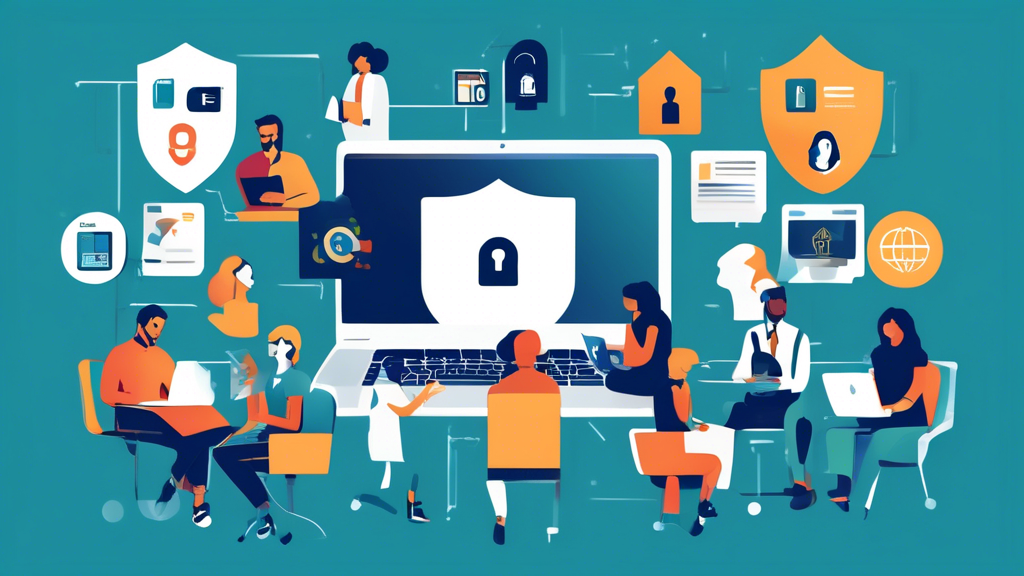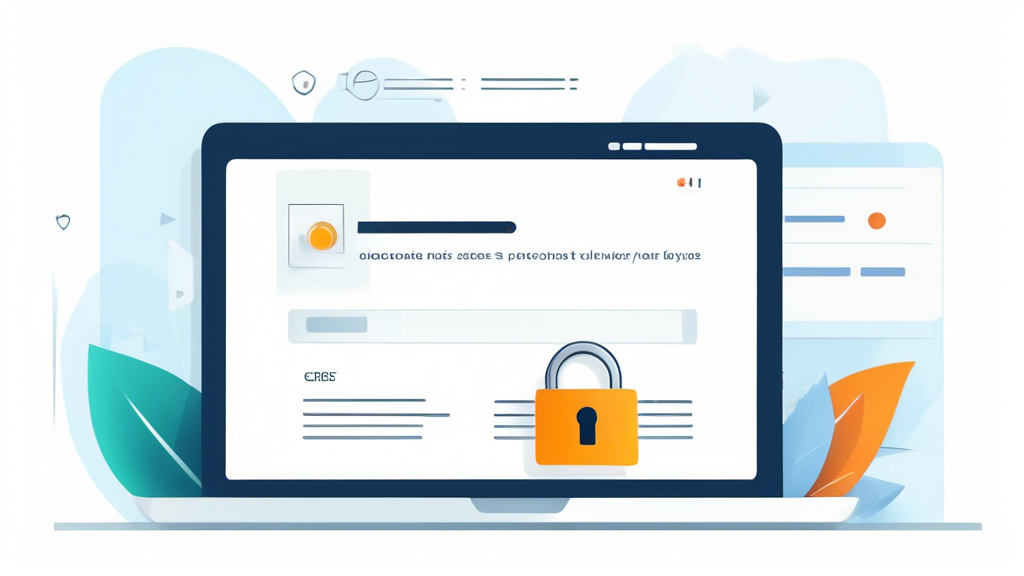Understanding the Importance of Online Privacy
In today’s digitally interconnected world, the significance of online privacy cannot be overstated. With the rise of cyber threats and frequent data breaches, protecting personal information has become more critical than ever. A Virtual Private Network (VPN) serves as a robust shield against these threats, enhancing your online security and ensuring anonymity across the internet. Delving into the realm of online privacy, it is essential to comprehend the common risks associated with inadequate measures and how a VPN can mitigate these dangers effectively.
The Rise of Cyber Threats and Data Breaches
Over the past decade, cyber threats have escalated, resulting in numerous high-profile data breaches affecting millions of users worldwide. Cybercriminals employ sophisticated techniques to intercept and steal sensitive data, including financial information, personal identification details, and browsing habits. As these threats continue to evolve, safeguarding one’s online activities has become a necessity, not a luxury.
How a VPN Enhances Online Security and Anonymity
A VPN works by encrypting your internet connection, thereby creating a secure tunnel for your data to travel through. This encryption makes it significantly harder for hackers and surveillance entities to monitor or intercept your online activities. By masking your IP address and rerouting your internet traffic through remote servers, a VPN ensures that your identity and location remain concealed, offering a heightened level of anonymity.
Overview of Common Risks Associated with Poor Online Privacy
The consequences of neglecting online privacy can be severe and far-reaching. Common risks include identity theft, financial losses, unauthorized data collection, and loss of personal freedom. Without adequate protection, your internet service provider (ISP), government agencies, and malicious actors can easily track your online behavior, leading to potential misuse of your information. Implementing a reliable VPN is an effective strategy to counteract these risks and safeguard your digital footprint.
Understanding the Importance of Online Privacy
The Rise of Cyber Threats and Data Breaches
In today’s digital age, the internet has become an integral part of our daily lives. However, this increased reliance on the web has also escalated the risks associated with cyber threats and data breaches. Cybercriminals and hackers are growing more sophisticated, employing a variety of tactics to infiltrate personal and corporate networks. Data breaches are alarmingly common, with millions of sensitive records being exposed yearly. These breaches not only compromise personal information but can also lead to financial losses and identity theft.
Whether you’re browsing social media, conducting online banking, or working remotely, your personal data is at risk. Cyber threats such as phishing, malware, and ransomware are pervasive, making it essential to take proactive steps to safeguard your information. This is where a Virtual Private Network (VPN) comes into play. Understanding the importance of online privacy is crucial for anyone looking to protect their digital footprint.
How a VPN Enhances Online Security and Anonymity
A VPN, or Virtual Private Network, is a powerful tool designed to enhance your online security and anonymity. By encrypting your internet connection, a VPN ensures that your online activities remain private and secure. When you connect to a VPN, your data is routed through a secure tunnel to a remote server, masking your IP address and making it difficult for anyone to track your online activities.
This encryption is vital for protecting sensitive information, especially when using public Wi-Fi networks, which are often targets for cybercriminals. With a VPN, you can browse the internet with confidence, knowing that your personal data is shielded from prying eyes. Furthermore, a VPN can help bypass geo-restrictions, allowing you to access content that may be blocked in your region.
Anonymity is another critical aspect of using a VPN. By concealing your IP address, a VPN helps prevent websites, advertisers, and even government agencies from monitoring your online behavior. This added layer of privacy is particularly important in an era where data is a valuable commodity, and third parties are eager to collect and exploit your information for various purposes.
Overview of Common Risks Associated with Poor Online Privacy
Neglecting online privacy can have serious repercussions. Some common risks associated with poor online privacy include:
- Data Theft: Without proper protection, your personal information, such as passwords, credit card details, and social security numbers, can be intercepted by cybercriminals. This data can be used for identity theft and fraudulent activities.
- Tracking and Surveillance: Websites, advertisers, and government entities can track your online activities, building detailed profiles based on your browsing habits. This invasion of privacy can lead to targeted advertising and even legal ramifications if your activities are deemed suspicious.
- Malware Infections: Insecure connections increase the likelihood of encountering malicious software. Malware can infiltrate your device, compromise your data, and even render your system unusable.
- Ransomware Attacks: Cybercriminals can encrypt your files and demand a ransom for their release. Without a VPN, your vulnerability to such attacks increases significantly.
- ISP Throttling: Internet Service Providers (ISPs) might monitor your online activities and throttle your connection speed based on your usage. A VPN can help bypass this limitation, ensuring a consistent and fast internet experience.
Given these risks, it’s evident that securing your online privacy is of utmost importance. A quality VPN not only mitigates these threats but also empowers you with the freedom to use the internet without fear of surveillance or data breaches. By prioritizing online privacy, you can navigate the digital landscape securely and confidently.
In conclusion, understanding the importance of online privacy is the first step toward protecting your digital identity. As cyber threats continue to evolve, investing in a reliable VPN becomes indispensable. The right VPN can provide robust encryption, ensure anonymity, and safeguard your personal information from various online threats. In the following sections of this guide, we will explore the key features to look for in the best VPN for online privacy and provide top recommendations to help you make an informed decision.
Key Features to Look for in the Best VPN for Online Privacy
When searching for the best VPN for online privacy, understanding the key features to look for is essential. These features ensure that your data remains secure and your online activities are well-protected. Here, we dive into several crucial elements that the best privacy-focused VPNs must offer.
Essential Security Protocols: AES-256 Encryption and Beyond
The foundation of any top-tier VPN lies in its security protocols. AES-256 encryption is widely recognized as the gold standard in the industry. It offers robust protection, ensuring that your data remains indecipherable to potential hackers. The AES-256 algorithm is so secure that it is used by governments and military organizations worldwide.
Beyond AES-256 encryption, additional protocols such as OpenVPN, IKEv2/IPSec, and WireGuard offer varied benefits tailored to different user needs. OpenVPN combines high speed with strong security, making it a popular choice. IKEv2/IPSec is known for its stability, especially on mobile devices, while WireGuard is celebrated for its modern, lean codebase and exceptional performance.
When evaluating VPNs, look for those that provide multiple protocol options. This flexibility allows you to switch based on your current requirement—whether it be speed, security, or compatibility.
No-Logs Policy: Why It Matters for Privacy
A no-logs policy is another critical feature when considering the best VPN for online privacy. This policy ensures that the VPN provider does not store any records of your online activities. Without logs, there is no data trail that can be traced back to you, ensuring complete anonymity.
It is essential to scrutinize VPN providers’ privacy policies to confirm their no-logs claims. Some providers may log metadata or connection timestamps, which can indirectly compromise your privacy. Ideally, choose VPNs that have undergone independent audits verifying their adherence to no-logs policies. This added transparency provides peace of mind, knowing that your online activities remain private.
Additional Features: Kill Switch, Multi-Hop, and DNS Leak Protection
Beyond encryption and no-logs policies, several additional features significantly enhance a VPN’s privacy capabilities.
Kill Switch
A kill switch is an essential feature that automatically disconnects your device from the internet if the VPN connection drops unexpectedly. This prevents your data from being exposed during these brief windows of vulnerability. The best VPNs for online privacy offer customizable kill switch settings, allowing you to choose which applications will shut down if the VPN disconnects.
Multi-Hop
Multi-Hop, also known as Double VPN, routes your internet traffic through multiple servers in different locations. This feature adds an extra layer of encryption and anonymity by masking your IP address twice. It significantly enhances your privacy and makes it even harder for third parties to trace your online activities. While multi-hop may reduce connection speed slightly, the trade-off in enhanced security is often worth it for privacy-conscious users.
DNS Leak Protection
DNS leak protection ensures that your Domain Name System (DNS) queries are routed through the VPN rather than your Internet Service Provider (ISP). Without this protection, your ISP could see which websites you visit, even if the rest of your data is encrypted. Effective VPN services have built-in DNS leak protection to safeguard against such vulnerabilities, ensuring that all your internet traffic remains private.
In summary, when choosing the best VPN for online privacy, prioritize those offering robust encryption, a proven no-logs policy, and essential additional features like a kill switch, multi-hop capability, and DNS leak protection. These components work together to provide a comprehensive shield, safeguarding your online activities from prying eyes and ensuring you remain anonymous and secure on the internet.
Top Recommendations for the Best VPN for Online Privacy
When it comes to selecting the best VPN for online privacy, the choices can be overwhelming. To help you navigate through the myriad of options, we have thoroughly examined and compared leading VPN providers. In this section, we’ll detail our top recommendations, discussing the pros and cons of each service, alongside insights drawn from user reviews and expert opinions. Each of these VPNs boasts robust features that safeguard your online activities and ensure your data remains private.
ExpressVPN
ExpressVPN is frequently cited as one of the best options for online privacy. It offers a vast network of servers in multiple countries, ensuring you can reliably mask your IP address and access content globally.
Key Features:
- Strong AES-256 encryption
- No-logs policy ensuring data anonymity
- Kill switch and DNS leak protection
- High-speed connectivity suitable for streaming
Pros:
- Excellent privacy and security features
- Intuitive and user-friendly interface
- 24/7 customer support via live chat
- Wide server network across 94 countries
Cons:
- More expensive than some competitors
- Limited simultaneous connections (up to 5 devices)
User Reviews: Users praise ExpressVPN for its reliability and speed, particularly highlighting its efficacy in maintaining privacy while accessing geo-restricted content. Experts commend its robust encryption methods and consistent no-logs policy.
NordVPN
NordVPN is another heavyweight contender when it comes to online privacy, known for its double VPN encryption and a plethora of privacy-focused features.
Key Features:
- Double VPN for extra encryption
- Strict no-logs policy
- Kill switch and CyberSec feature to block ads and malware
- Access to over 5,200 servers in 60 countries
Pros:
- Exceptional security features including Double VPN and Onion over VPN
- Fast connection speeds
- Able to bypass most streaming services’ geo-blocks
- 24/7 customer support
Cons:
- Desktop apps can be slow
- Some server connections can be inconsistent
User Reviews: NordVPN users often appreciate its balance of speed and security, with many emphasizing its effectiveness at circumventing censorship and accessing varied content online. Experts frequently highlight its double encryption and comprehensive no-logs policy.
Surfshark
Surfshark is a newer entrant in the VPN market but has quickly gained a reputation for its affordability without compromising on security features.
Key Features:
- Unlimited simultaneous connections
- No-logs policy
- CleanWeb feature to block ads and trackers
- Multihop (double VPN) and Whitelister (split tunneling)
Pros:
- Cost-effective without compromising on features
- Unlimited devices under one subscription
- High-speed servers
- 24/7 live support
Cons:
- Smaller server network compared to others
- Newer, less established company
User Reviews: Users are impressed with Surfshark’s affordable pricing and the ability to use it on unlimited devices. Experts commend its innovative features such as Multihop and CleanWeb, noting that it offers substantial privacy protection.
CyberGhost
CyberGhost provides a user-friendly interface and robust privacy features that make it a favorite for those prioritizing ease of use alongside security.
Key Features:
- Military-grade encryption (AES-256)
- No-logs policy
- Automatic kill switch and DNS/IPv6 leak protection
- Dedicated servers for streaming and torrenting
Pros:
- User-friendly applications
- Dedicated IP options available
- 7 simultaneous connections
- 45-day money-back guarantee
Cons:
- Price increases after the first term
- Some reports of inconsistent server speeds
User Reviews: CyberGhost stands out for its ease of use, with users often praising its intuitive interface and dedicated streaming servers. Experts appreciate its comprehensive privacy policies and extensive server selection.
PIA (Private Internet Access)
Private Internet Access (PIA) is well-regarded for its strong privacy stance and customizable security options, making it a top choice for more advanced users.
Key Features:
- Advanced encryption options (AES-128 and AES-256)
- Strict no-logs policy
- Automatic kill switch and multiple VPN gateways
- Built-in ad blocker (MACE)
Pros:
- Highly customizable privacy settings
- 10 simultaneous connections
- Strong commitment to no-logs policy
- Open-source software
Cons:
- Based in the US (subject to data retention laws)
- Interface may be daunting for beginners
User Reviews: PIA users often highlight the extensive customization and robust privacy features available. Experts frequently note its transparent policies and commend its open-source software approach for increased trust.
In conclusion, selecting the best VPN for online privacy depends largely on your specific needs and preferences. Each of the VPNs mentioned above excels in various areas, whether it’s robust security features, affordability, or ease of use. By understanding the pros and cons of each service, you can make an informed decision to ensure your online activities remain private and secure.
Conclusion: Making the Final Decision
Choosing the best VPN for online privacy is a crucial step in safeguarding your digital footprint. With cyber threats on the rise and data breaches becoming more common, understanding the importance of online privacy cannot be overstated. A reliable VPN enhances your online security, makes you anonymous, and mitigates many common risks associated with poor online privacy practices.
Key Takeaways
When selecting a VPN, it’s essential to look for robust security protocols such as AES-256 encryption, a strict no-logs policy, and additional features like a kill switch, multi-hop capabilities, and DNS leak protection. These functionalities collectively ensure that your online activities remain private and secure.
Our detailed comparison and recommendations of leading VPN providers highlight the strengths and weaknesses of each option. User reviews and expert opinions further provide insights into their performance in maintaining privacy.
Final Thoughts
By thoroughly assessing your needs and carefully evaluating the features of various VPN providers, you can make an informed decision. Investing in the best VPN for online privacy is a proactive measure to protect your personal information and enjoy a safer internet experience. Remember, the right VPN not only safeguards your data but also empowers you with the freedom to explore the digital world without fear of compromise.









